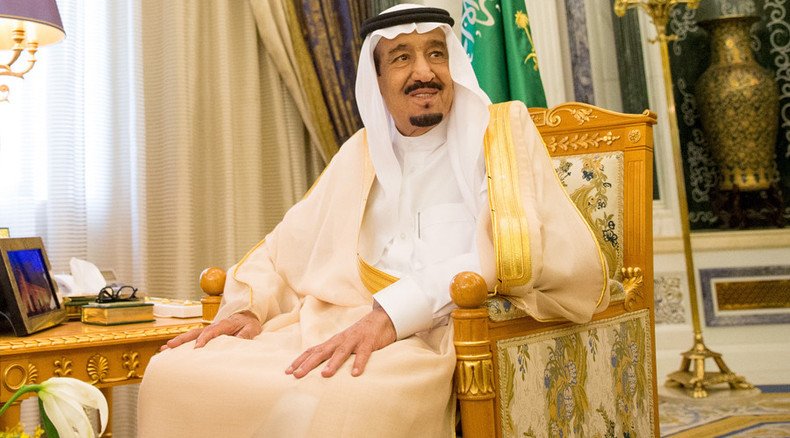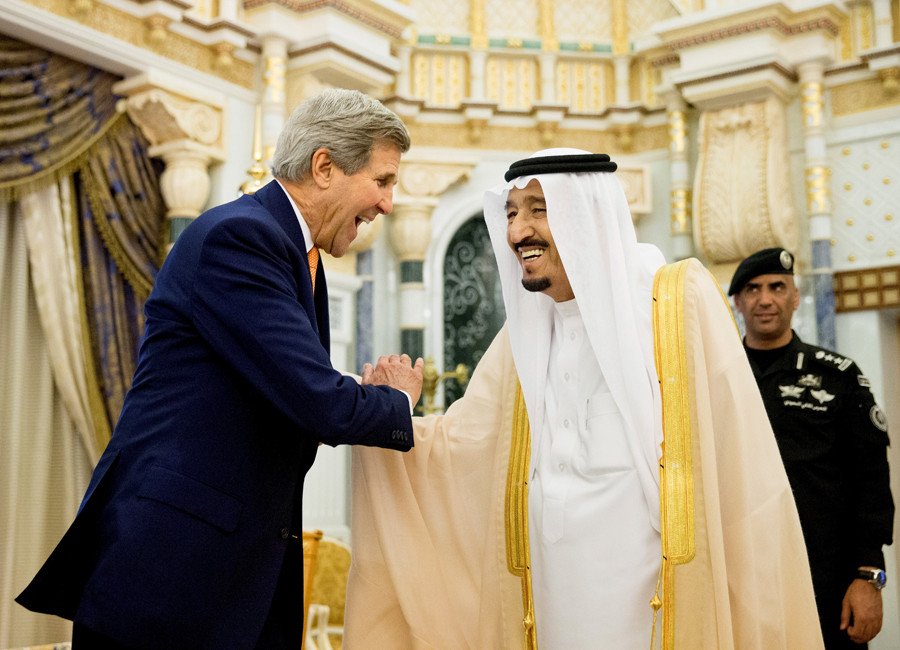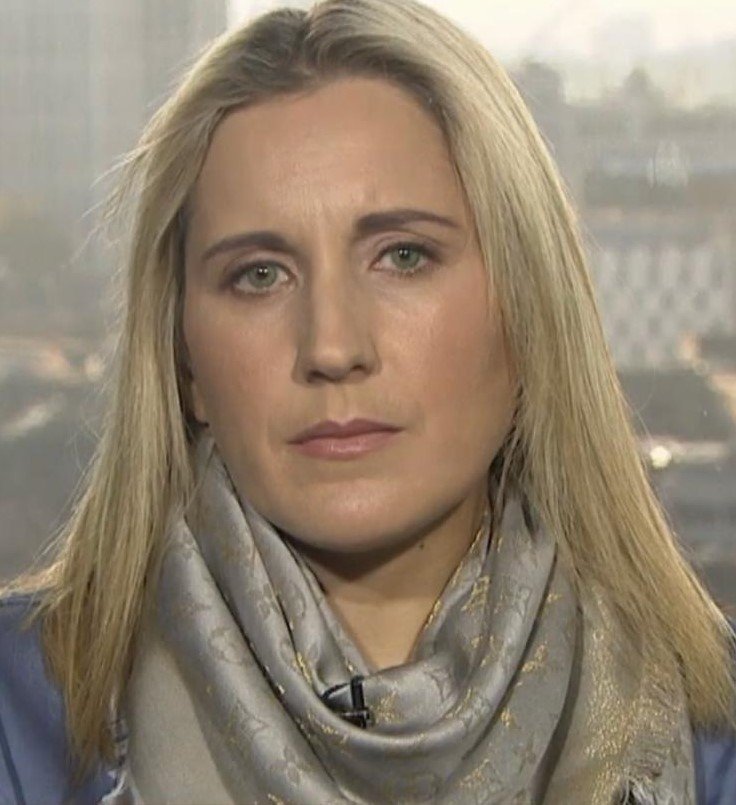The Iran Obsession - What ails the Kingdom of Saud?

Just as the international community embraces the prodigal Iran back into the fold, Saudi Arabia is trying to reverse the return to grace of its nemesis. Intent on protecting its legacy, is there anything the kingdom won’t do to paint Iran as the enemy?
The grand hegemon of the Middle East, Saudi Arabia has long used its status as an oil superpower and its religious clout in the Islamic world to sit as a titan over the region and as a strategic ally for western powers.
And while many imagined the kingdom untouchable and absolutely powerful by the sheer strength of its economic might and reach of its political alliances, WikiLeaks, maybe unwittingly, has divulged an interesting chip in the kingdom's armor.
If Saudi Arabia has been keen to project itself onto others as secure, in control and endlessly wealthy, its officials, it appears, have lived in fear of Iran, obsessing over its political, religious and economic pull in the region, forever working to undermine its standing within the world community; as if Saudi Arabia's life expectancy was tied to the rise or fall of the Islamic Republic.
And though Saudi Arabia's antipathy towards Iran has left very little to the imagination over the decades, the depth and length the kingdom went to in order to feed the anti-Iranian train and thus sabotage any hope of a bridge in between the two peoples, let alone the rest of the western world, cannot be put down to a simple religious disagreement or even upset political ambitions. Saudi Arabia's hatred for Iran is more than just a little psychotic, it has defined the kingdom's foreign policy and translated at home into a violent sectarian vendetta.
Lo and behold, Iran has become the capital state of Shia Islam.
But can a religious dispute and the need for theological vindication ever truly justify such ire and loathing for an entire people - Shia Muslims? Or is there more to Saudi Arabia's paranoiac fear of Iran?
While no exact tally of Saudi Arabia's religious patronage exists, it is thought that the kingdom invested an excess of $100 billion over the past three decades in exporting fanatical Wahhabism - its own home-grown, honed and state-approved interpretation of Islam - to a flurry of "sympathetic" organizations worldwide.
At the same time, Saudi Arabia engaged in a vicious campaign against Iran, its appointed religious nemesis and political adversary. It is important to remember that where Saudi Arabia sits its institutional legitimacy on its monarchical roots, imposing its religious vision to the whip of its lashes, Iran has risen since 1979 a Republic and a pluralist democracy. Everything Iran became and stands for, whether religiously, socially or politically, is a negation of Saudi Arabia, and there lies Riyadh's fear.
And while of course, Iran cannot, and actually does not claim to own any absolute political truth or perfect social formula, it is far from being the evil Riyadh has worked so very hard to paint. Iran's image has been so distorted and manipulated under Saudi money that most Iranians and to an extent Shia Muslims do not recognize themselves, nor their values, in the propaganda weaved and disseminated by Riyadh's pawns.
WikiLeaks most recent "release" opens the lid on a veritable trove of documents, each painting a new shade of Saudi fixation with Iran and Shia Islam. The Saudi Foreign Ministry dedicated an incredible amount of resources toward not just monitoring but falsifying and undermining Iran's efforts to get back to the world political roundtable.
From a nuclear Armageddon to cries the world could soon be made to bow to Shia Islam should Iran be allowed to breathe easy, Saudi Arabia played fears and religious prejudices to its advantages, splashing petrodollars to soothe politicians’ doubts and silence the opposition.
Arguably, the real threat to peace and stability is Saudi Arabia. If not for Riyadh's institutionalization of ethnic bias and religious intolerance, the Muslim world would have remained true to its pluralist traditions, thus leaving little room to extremism.

As Michel Kaplan, an associate with the Sana'a Institute for Arabic Studies, noted, "Riyadh's recent initiatives against Iran have included undermining foreign officials and media opposed to the kingdom's narrative. Such propaganda remains to this day unmatched in its scope and reach. So much so that Saudi Arabia's reality has become people's truth."
But Iran's nuclear deal and its anticipated return within the fold of the international community upset Riyadh's design rather dramatically.
And where nations sighted in relief before such a colossal diplomatic achievement, comforted in the idea that the drums of war had receded in the distance, if anything for a moment at least, the kingdom only flexed its muscles further, determined to break the Iranian momentum in its infancy.
Saudi Arabia's next move would betray exactly its intentions.
Just two weeks after Western nations and Tehran struck a deal to limit Iran’s nuclear program, Saudi Arabia went on a military shopping spree, signing deals with the US for the delivery of yet more Patriot Missiles. But that is not all.
Following the visit in France, Deputy Crown Prince Mohammed bin Salman returned home with several billion dollars worth of aircraft and energy contracts, thus signaling a shift in Riyadh's foreign policy and attitude towards the US. Riyadh and Washington's love affair is souring.
With or without the US, Saudi Arabia will remain at war with Iran.
And while many were left under the impression that Riyadh's hatred towards Iran was very much US-oriented, it could be instead that it was Riyadh embedded animosity vis a vis the Islamic Republic which fed America's mistrust.
In any case, dynamics are changing and it is likely the Middle East will witness a dramatic political shift as a result.
And while Saudi officials have drummed into diplomats’ ears that they worry Iran will use the nuclear agreement to deepen its involvement in Arab affairs as sanctions are lifted and its economy and revenue expand, Riyadh’s propaganda machine is slowly grinding to a halt.
The statements, views and opinions expressed in this column are solely those of the author and do not necessarily represent those of RT.
The statements, views and opinions expressed in this column are solely those of the author and do not necessarily represent those of RT.













